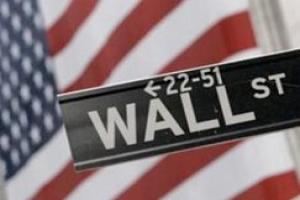
A recent Gallup poll reveals something that everyone except for the President and his chief economic adviser, Peter Navarro, seem to know: Americans love trade, and their already-scant support for the trade war is waning. In
fact, the current Administration’s fervor for treating the United States
like a private corporation in trade negotiations comes at a time when –
and is perhaps partially to account for – polls that show American
citizens are harboring the most positive view of trade that they’ve held
in almost 30 years.
While the “Trade Under Trump” report does indicate that sentiment on
trade follows prevailing economic conditions to some extent, almost half
(45%) indicated thinking that the US economy would be worse off as a
result of the tariff war with China; 31% polled thought that it wouldn’t
make a difference to the economy, and 19% thought it would improve the
economy. By contrast, in 1992 more Americans saw trade as a threat to
the U.S. economy than as an opportunity. (Indeed, other polls confirm this general trend.)
The development of the commercial aspects of the internet have
helped, no doubt, to set the stage for these vast changes in public
sentiment. It may have been difficult for people living in the 1950s
(for that matter, the 1870s) to imagine just how many more goods and
services they would have access to, or what the effects of price
competition would be, with the international expansion of the
marketplace. But just being exposed to Amazon or eBay has led people to
recognize the favorable impact on their lives of broader, preferably
unfettered trade.
Relatedly, Gallup found that 70% of Americans view trade with foreign
countries as having a mostly positive effect on innovation and the
development of new products. US economic growth, 67% said, is affected
in a mostly positive way by foreign trade, and 63% felt that the prices
they paid were positively affected.
It all stands to reason. Tariffs and every other aspect of
interference with trade are just another government policy, and the
interactions any American has with the government tends to slow us down,
limit choice, and introduce higher costs: think speeding tickets,
regulatory bans, and sales taxes. And where Trump’s senseless trade war
is considered, perhaps no group is experiencing this first hand more than American farmers.
One speculative view to consider is that the increasing American enthusiasm for trade is related to the embrace of online dating, albeit in a highly roundabout manner. As recently as
twenty years ago it was tacitly accepted that one would find their
soulmate within twenty or so miles of where they live or work, often
with the help of friends. Today, something on the order of 40% of
American couples meet online (with the estimate almost 20% higher than
that for same-sex couples), individually.
Even a few decades ago, most people would have conceded that an
expanded dating pool would positively impact their likelihood of finding
a mate meeting sought-after qualities; indeed, the existence of singles
events attests to this knowledge. But with the arrival of the internet and the development of competitive
dating services and apps, the pool of interested, potential mates
exploded amid the introduction of products offering customization,
efficiency and value.
There are numerous other factors accounting for increasingly pro-trade tendencies among U.S. citizens. Americans constitute the largest consumer market in the world with the highest levels of household
spending – as such, they are always actively seeking new products.
Long-told tales of American labor being “taken advantage of” by cheaper,
harder-working foreign labor are increasingly falling upon skeptical ears. And virtually all of the political reasoning supplied in support of the trade war has been shown to be erroneous or mendacious.
And that is an often overlooked component of what international trade represents: not just access to greater choice on more convenient terms, for incrementally increasing savings, ultimately leading to mutually beneficial gains and prosperity, but all of those voluntarily entered into on an individual basis. There is no amount of red tape or nationalist fervor that will, for any appreciable length of time, make Americans eager to forfeit the bounty they and their families realize arising of increasingly and wonderfully borderless commerce.
THIS ARTICLE ORIGINALLY POSTED HERE.



